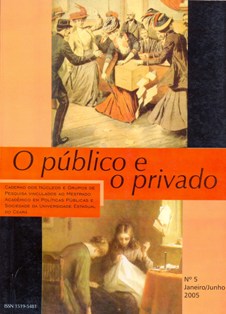Knowledge and comparative advantage
Keywords:
University, Knowledge policy, Comparative advantageAbstract
Knowledge, since the early 1990s, has become the most decisive comparative advantage in the globalized competitive market. It is possible to produce more and better with the construction and use of knowledge, adding the advantage of a constant reduction in the need for labor. Before, the workforce was used, now the intelligence of the worker. In the comparison between countries, perhaps the strongest criterion of distinction today is the ability to produce self-knowledge, which is why research universities have taken the lead in the academic world for good. It is disruptive knowledge, one that knows how to think autonomously and can thus face limits and always take on new challenges. This perspective puts into disuse the common idea among us of knowledge transmission, because knowledge transmitted is only information, however important it is for society. However, knowledge as a comparative advantage easily masks its neoliberal claim, through which it is imprisoned in the market, distancing itself from the demands of citizenship. Who knows how to think, often does not appreciate that others also know how to think. It is therefore necessary to educate knowledge, so that it serves collective citizenship, not just competitive profit.











